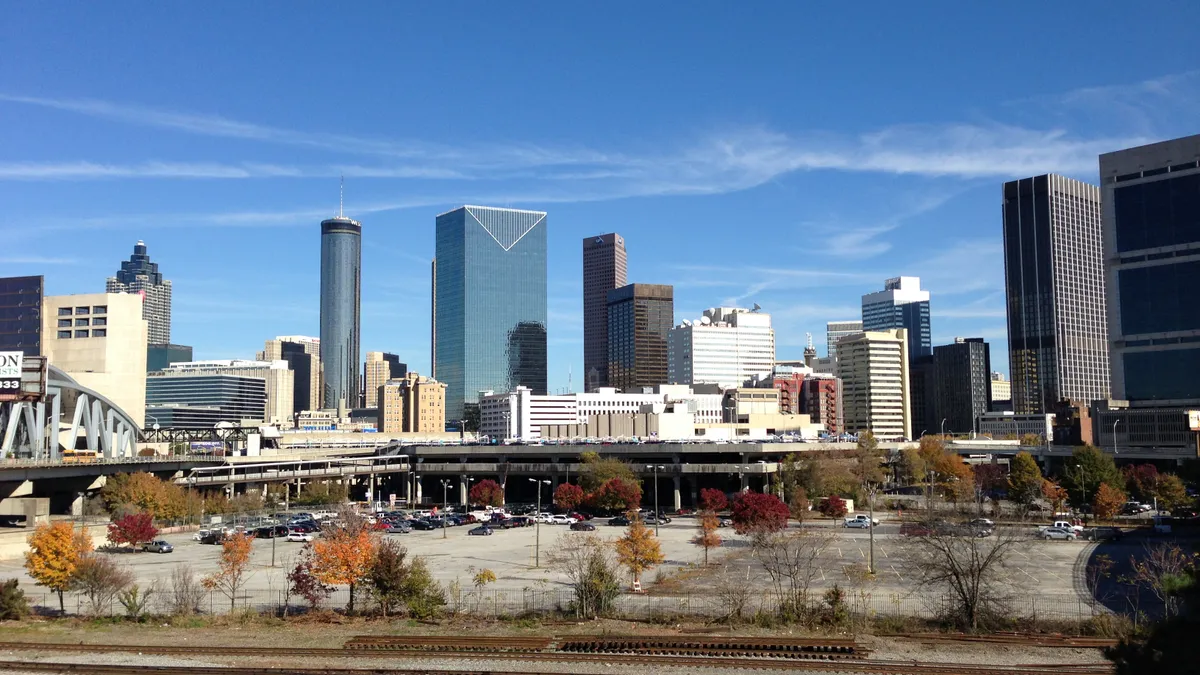Dive Brief:
- After an hours-long meeting during which local lawmakers reportedly argued their points and heard public comments, the Atlanta City Council approved approximately $1.9 billion in subsidies for developer CIM Group's proposed $5 billion midtown Gulch project.
- The council, which approved four ordinances related to the project, allowed the issuance of $40 million in Tax Allocation District bonds, The Atlanta Journal-Constitution reported, authorized CIM to draw $625 million in tax revenue generated by the Gulch project and, as part of the establishment of an Enterprise Zone, will let $1.2 billion in sales tax revenue collected from the Gulch return to CIM. The current proposal for the 40-acre site, which CIM wants to split into 18 parcels, includes nine towers of at least 225 feet in height, with one at 500 feet; 9 million square feet of office space; 1,000 residences; 1,500 hotel rooms; 1 million square feet of retail; and a $500 million steel and concrete platform to raise the site about 40 feet over active rail lines to street level.
- CIM has agreed to provide a community benefits package, according to the Journal-Constitution, that includes $28 million for affordable housing; 200 affordable units — or 20% of total residences — included in the Gulch project; $12 million for economic development; $12 million for a new fire station; $2 million for workforce development; Gulch space for the Atlanta police and a requirement that 38% of construction contracts be set aside for minority- and women-owned businesses. Nevertheless, critics of the project argue that it will spur gentrification and that the subsidy money could be better used elsewhere.
Dive Insight:
When giant developments come to town, they can provide a variety of economic benefits locally and even statewide depending on their size. However, most lawmakers are demanding more in return. Some want a guarantee that a certain percentage of local residents and contractors will get construction jobs and are looking for a commitment to long-term workforce development. Others have an eye out for financial help with the expansion of emergency services and public works capacity, infrastructure improvements and contributions to affordable housing programs, often in part to offset demolition of existing low- or moderate-income units.
Cities are expecting more from the corporations that want to set up shop, even when it comes to long-time corporate residents. Detroit activists are demanding that motor giant Ford pony up more in community benefits in exchange for the $104 million of incentives the city is kicking in for the company's new campus in Detroit's Corktown neighborhood. So far, the company has committed to its workforce comprising of a 50% volume of Wayne County, Michigan, residents, with 30% located in Detroit. The automaker also agreed to spend $5 million on local workforce development and build some housing. However, some in the community called the company's $10 million commitment a "drop in the bucket" when considering the multinational company's resources.













